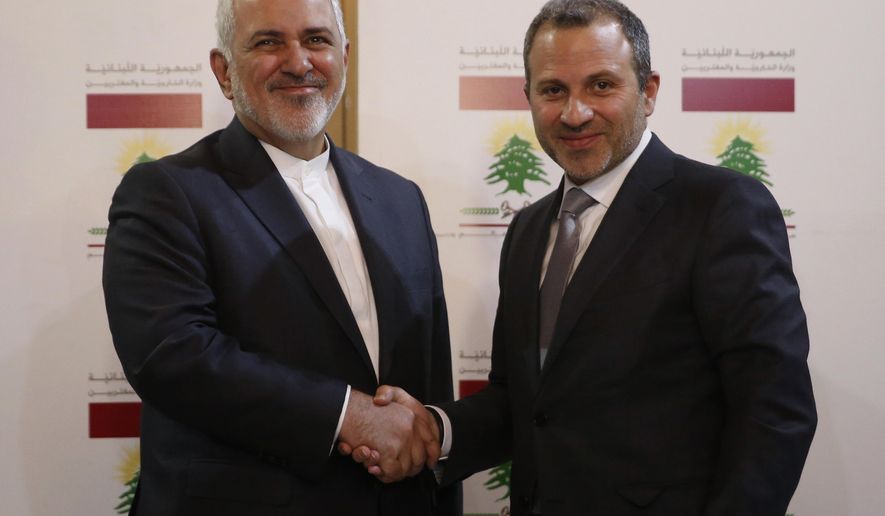OPINION:
The nation of Lebanon in the Levant, directly north of Israel, has long been an economic basket case, since its fall from grace as a tourist jewel on the Mediterranean several decades ago. The Iranian-controlled terrorist militia army of Hezbollah runs most of the country, however, it seems Hezbollah has now found a way to unlock Western aid into its coffers by a clever arrangement with Lebanese government officials.
Foreign Minister Gebran Bassil has been accused in the foreign press of being a Christian cover for Hezbollah in the Lebanese government. Al Arabiya English wrote, “In a news conference Monday in Rifi’s home city of Tripoli in north Lebanon, the former justice minister Ashraf Rifi, described Bassil as the “most corrupt” minister in the government.
“Since the Free Patriotic Movement provided a Christian cover to Hezbollah’s weapons, Iran paid the FPM large sums of money periodically,” Rifi said, referring to the political party which Bassil heads. “This money was transferred to Lebanon in boxes that had ’the Iranian Red Crescent’ written on them. Bassil personally received and transferred these cartons.”
Lebanon is currently attempting to secure an $11 billion aid package from international donors which is dependent on tackling the endemic corruption problem in-country.
The Lebanese president has to be a Christian by law. This arrangement with Hezbollah would allow the Iranian-backed Shia militia to get around this inconvenient restriction. Bassil is the son-in-law of the current Lebanese president, and seeks to replace him in time, possibly then allowing him to serve Iran and Hezbollah’s interests in the region.
There is more.
Power generation seems to be a problem in Lebanon. Accusations have been made that Bassil has been profiting from a scheme involving floating electricity-generating turbines off the Lebanese coast. These were supposed to be a temporary measure to alleviate a power generation shortage five years ago.
“Power costs are the main reason public debt increased. More than $36 billion out of $86 billion, which is the total sum of public debt, has been spent on power,” Rifi declared.
Rifi added that the cost of hiring the power-generating ships for the first five-year period between 2012 and 2017 was $755 million. As an example of the high cost of the temporary power solution, he said that the government spent $393 million on the ships for the first three years, but the cost of building two power plants in Zouq and Jiyeh only cost $350 million.
He also said that after the three-year contract ended, Bassil, in his capacity as then energy minister, renewed the contract for another two years despite the misgivings of the Central Inspection Board, which questioned the credibility of the Karadeniz Energy Group which owned the ships, added Al Arabiya.
Lebanon currently runs a budget deficit of approximately 11% of GDP, one of the highest in the world.
Bassil pushed back against Rifi’s accusations. “We will confirm to the public opinion through the [relevant] constitutional institutions that Rifi is not credible and that he always [relies] on lies and slander for the purpose of gaining popularity,” a statement issued by Bassil’s press office said.
Rifi responded on Twitter. “Your threats will not deter us from resuming the path of fighting corruption until the end.”
“We will not rest before facts are exposed via evidence. The looted public funds must be returned to the treasury,” he added.
Mr. Bassil will be in Washington, D.C., soon for a religious minority conference. As the resistance against the Iranian regime ramps up around the world, perhaps questions should be asked about his current relationship with Hezbollah and the Iranian Mullahs.




Please read our comment policy before commenting.